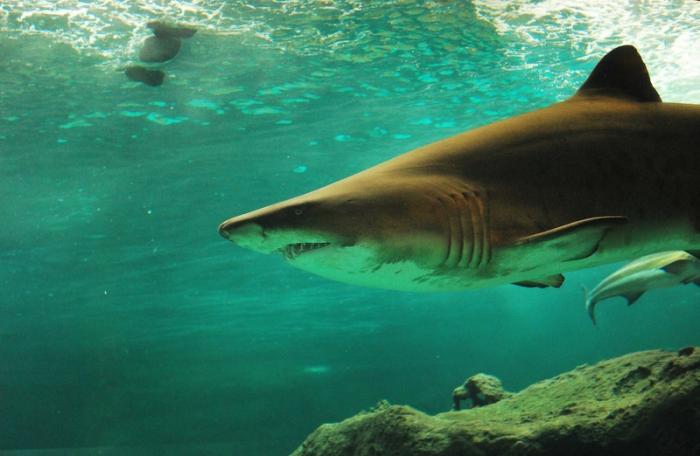Keeping our sharks out of the soup

PHUKET: Movies and fascinating documentaries depict fierce predators lurking beneath the surface of azure waters just waiting to rip unsuspecting swimmers into fleshy ribbons with their hideous teeth.
Well, that image is just plain wrong, according to Brendon Sing, spokesperson for Shark Guardian, a registered conservation charity.
Brendon visited Palm House International School in Rawai last week to deliver this message to its students. “Public perception of sharks is contradictory to the abundant evidence that supports the benefits people gain by the presence of sharks,” claims Brendon.
The children of Palm House School were riveted by the media presentation and the accompanying facts and anecdotes, delivered in a well-paced fashion, which held their attention throughout.
Sharks have been around four times longer than dinosaurs and with declining shark numbers at the top of the food chain any tampering that causes imbalance in the natural order will have drastic effects for the world. 97 per cent of sharks are actually harmless to humans and of the remaining three per cent, the rare cases of harm caused to humans are over-sensationalized.
Shark attacks usually occur because humans can resemble natural prey; surfers on boards, for example, offer silhouettes from below which correspond with turtles’ shadows.
It has been reported that horses are the animal that kills the largest number of people in Australia, yet the absence of “Horse Alert” helicopters seems incongruent. More people are annually killed by the humble kitchen toaster than by sharks.
Asia, and particularly Thailand, have seen dramatic declines in shark populations due to market demands for shark fin soup, and as a result of oceanic pollution. Sightings of Phuket’s harmless local Leopard Shark have declined over the last five years, from a few each month to less than one every two months.
Local floating restaurants have caged some sharks in efforts to draw customers but this practice is being addressed by the Shark Guardian charity by offering assistance in providing other promotional incentives for those restaurants who abstain from caging sharks.
With 12,000 sharks killed each hour and 90 per cent of shark species already extinct, the current pace of shark demise can be countered by the concept of ecotourism, and Phuket is ideal for this.
More revenue is generated for the community by one tourist coming to see sharks in their natural habitat than is received from selling a shark as a carcass. Large shark protection areas measuring hundreds and thousands of square kilometers have been designated in other parts of the world.
According to Shark Guardian, Phuket has a great opportunity to cash in on the tourist dollar while at the same time doing something good for the environment.
The students of Palm House School, now better educated about the plight of sharks, now ask, “Can we have a Shark Park, please?”
— Myles Randall
Latest Thailand News
Follow The Thaiger on Google News:


























